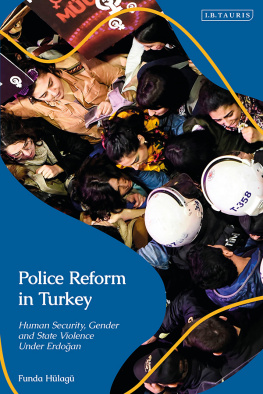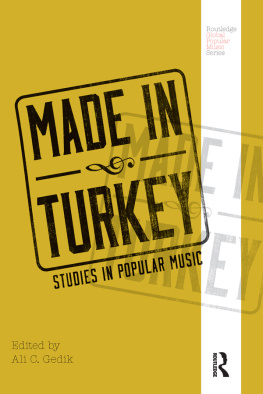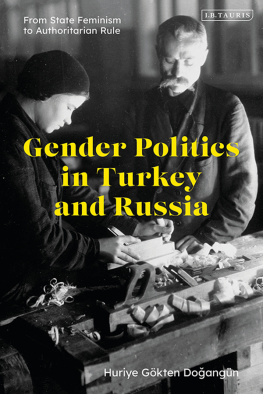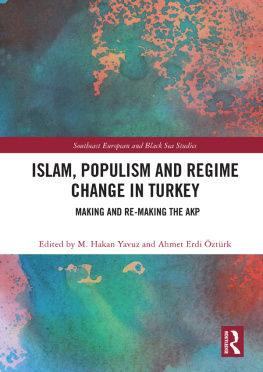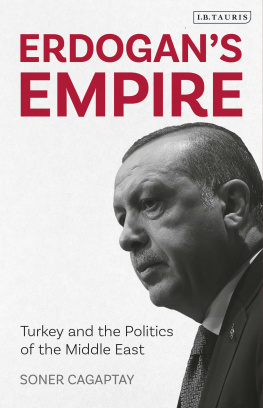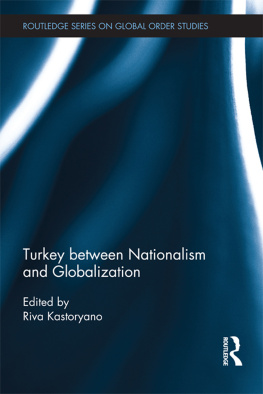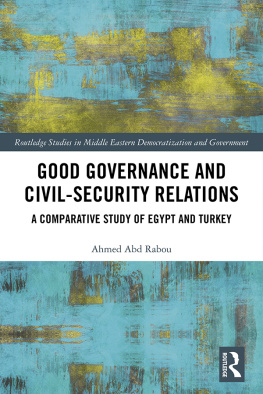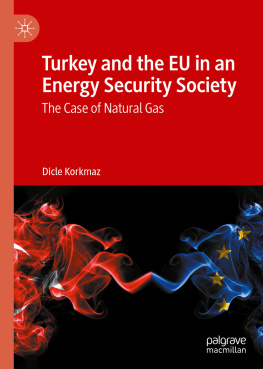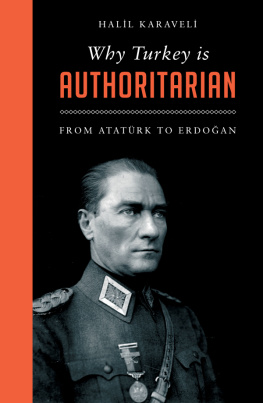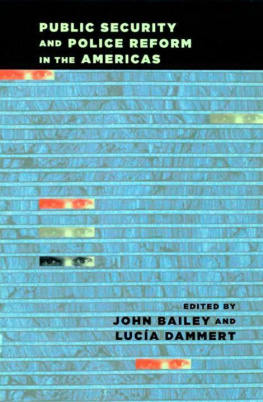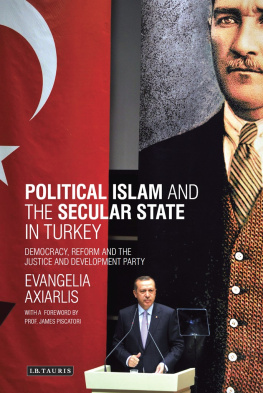Police Reform in Turkey
Contemporary Turkey, published in collaboration with the British Institute at Ankara
Series editor: Ceren Lord
New and forthcoming titles:
Turkey and the Politics of National Identity, edited by Shane Brennan and Marc Herzog
Police Reform in Turkey, by Funda Hlag
Architectures of Emergency in Turkey, edited by Eray ayli, Pinar Aykac and Sevcan Ercan
The Alawis of Modern Turkey, by Hakan Mertcan
Gender and Education in Turkey, by Zhre Emanet
As our understanding of modern Turkish history continues to evolve, and as the Middle East continues to change, a new generation of scholars are exploring questions of identities, class, politics, diplomacy and religion. The British Institute at Ankara (BIAA) is internationally renowned for its support of new independent academic research in the region across various fields, including archaeology, ancient and modern history, heritage management, social sciences and contemporary issues in public policy, and political sciences. Contemporary Turkey is a collection of specially commissioned books published in a collaboration between I.B. Tauris and the BIAA, which focus on the identity, history and politics of republican and modern Turkey. Authors and contributors combine academic rigour and scholarship with extensive first-hand experience in the region.
Police Reform in Turkey
Human Security, Gender and State Violence Under Erdoan
Funda Hlag
Contents
This book is the most recent product of my academic journey, one full of ups and downs. It is the outcome of precarious working conditions, political despair and personal disappointments coupled with many good moments of solidarity, encouragement and inspiration. Many people deserve special thanks. Had Prof. Dr Pnar Bedirhanolu not encouraged me to rethink my PhD thesis under the light of the last decades political developments in Turkey, I doubt that I would have dared to revisit my doctoral dissertation, with which I have been in a love-and-hate relationship for years now. Many thanks, Pnar! Had Prof. Dr Annette Henninger not provided me with a warm solidarity in times of academic despair, I would not have had a chance to complete this book project. Prof. Henninger introduced me to the lovely department of Political Science in the Phillips University of Marburg, where I have been teaching now for three years. This has been the greatest experience of my academic life. Many thanks, Annette! I would also like to thank my interviewees who kindly shared their valuable time with me when I wanted to learn more about the police reform process and its gendered journey in Turkey. Without doubt, all potential errors are my own. Finally, I would like to extend my gratitude to my amazing partner Berk who gave me unconditional support so that I could realize this dream of mine. I dedicate this book to my seven-year-old daughter, Defne Roza, without whose astonishing self-sufficiency, I would never have found the chance to finish this book on time.
When the footage showing the clamours of Dilek Doans family, a young woman shot to death in October 2015 in her house during a police operation, was public, nobody could stay indifferent. The police raid, which took place in the Kkarmutlu district of Istanbul, was conducted by a special police operations team. The perpetrator was the chief of the team. When asked about the shooting, the police chief told that on the day of the incident he had just come back from the state of emergency region in the South-eastern Turkey and that he was tired and had hurried to end the operation to go back home. He further declared that his conscience was clear, and that he did what the state told him to do.
The same year three more women were subject to lethal police violence (ahin, 2015). This was largely due to the public reactions to the video footage showing her, just a couple of minutes before her being shot to death, in her pyjamas, asking the police to remove their boots while entering the house. After this horrific event, pro-government media tried to prove that Dilek Doan was a member of some outlawed left-wing groups. Her murder was ex post facto justified based on her alleged links to these groups. She was criminalized, as indeed all her family, so that the public discontent with the brutal policing politics of the government was alleviated.
Dilek was not the only female victim of the post-Gezi Protests authoritarian turn of the state in Turkey. During the Gezi Protests in 2013, peaceful women activists and/or protestors were subject to gendered forms of state violence. Many were harassed, strip-searched and insulted by the police. During the rise of the armed conflict with the Kurdistan Workers Party (PKK) in 2015, these gendered forms persisted marking the state violence. During the state crisis of 201416, when the coalition between the Glenist bureaucracy cadres and pro-Erdoan ones collapsed, the state violence continued producing heavily gendered outcomes. In each case, politically active women whether they are protesters, activists or political fighters were expressly targeted.
The murder of Dilek Doan was realized under the auspices of a government that has been claiming to be committed to the moral dictates of human security, to the act of loving every creature because of the Creator How is that a government that has presumably declared zero tolerance for police-led violence and trained a whole state apparatus from the police organization to the judiciary against gendered violence reverted or could revert to the opposite? How is that the so-called reformed police of Turkey under the Justice and Development Party (AKP, henceforth) governments brought unaccountable state action and brutal state violence back in? Were all the reforms done, all the deeds promised and all the international mentorship devoted to the police reform just cosmetic? Or was there something particularly specific in those processes that instituted the origins of the new round of gendered state violence in Turkey?
This book is an attempt to provide a critical interpretive framework, for the AKP-era reform initiatives taken by the state in Turkey in the field of internal security, especially of policing, a framework which can account for the coercive dialectic of the so-called pro-humane reform process. This study proposes that such a task can first be accomplished with the help of a feminist-materialist theory of the state. In a nutshell, the materialist-cum-feminist theory of state provides us with a methodological framework that posits the state form as a historical-relational structure, with deep-rooted gender selectivities. Materialist feminist theorys contribution is not limited to detecting the gendered nature of the state. It does also give us hints about the general transformation of the state in Turkey.
The main aim of this study is to understand the reform process by shedding light on the different agents and their struggles over the state with a focus on gender. For the making of police reform is a process of struggle, conflict and coalition among different agents of change, with different power resources, ideological commitments and practices.
In order to understand the seemingly paradoxical eruption of gender-based state violence after years of state transformation, first, the post-Cold War ideology of liberal of state-building and its agents who instigated the state/police transformation processes around the world should be delineated. In a nutshell, security sector reform (SSR) defines itself as a project of replacing the state security understanding which shaped the state-society relations during the Cold War era with that of human security (Chanaa, 2002). There is a global consensus on the definition of SSR as the reconstruction of the security institutions of the state after a human security-first understanding. But could the liberal sources of these reform processes, the very liberal geoculture of the post-Cold War era, have been real barricades against state violence? Or to what extent has the long-cherished liberal geoculture been truly conducive to a peace-prone state culture?

